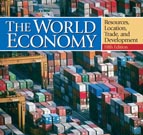ECB to keep rates on hold as oil spurs inflation worries
 Frankfurt - The European Central Bank's 21-head rate-setting council is expected to leave interest rates on hold Thursday for the 11th consecutive month as spiralling oil and food prices threaten to spark a renewed surge in inflation.
Frankfurt - The European Central Bank's 21-head rate-setting council is expected to leave interest rates on hold Thursday for the 11th consecutive month as spiralling oil and food prices threaten to spark a renewed surge in inflation.
Despite a series of rapid-fire US rate cuts and signs of crimping economic growth in the 15-member eurozone, analysts predict that the ECB's governing council will hold its benchmark refinancing rate at a six-year high of 4.0 per cent at its meeting, which this week will be held in Athens.
The build-up to Thursday's meeting has been accompanied by oil prices soaring to a record high topping 122 dollars a barrel with ECB chief Jean-Claude Trichet warning earlier this week of the "significant" threats to inflation posed by rising food and energy prices.
As a result, most analysts are expecting Trichet to talk tough again on Thursday when he addresses journalists at his regular monthly press conference following the governing council's meeting.
Thursday's ECB meeting is also expected to coincide with an announcement from the Bank of England that it too had kept its benchmark rates on hold at 5 per cent.
But unlike the ECB, analysts believe that sinking British housing prices and a steady stream of downbeat economic news could open the way for the Bank of England to press on with its rate-cutting cycle, possibly as early as next month.
Moreover, some analysts believe with the ECB keen to demonstrate its anti-inflation credentials it could use the evidence of the threat of resurgent inflation to take an even more hawkish stance this week.
While official data released last week showed eurozone inflation edging down from 3.6 per cent in March to 3.3 per cent in April, inflation in the currency bloc still remains well above the ECB's annual 2-per-cent inflation target.
That said, however, both the ECB and economists are expecting inflation to slow as the year unfolds, which ultimately could help to pave the way for the bank to reduce the cost of money later in the year.
In the meantime, combined with a strong euro, the risks of another round of consumer price pressures have allowed the ECB to buy time on interest rates as it sizes up the economic fallout for the eurozone from rising inflation and slowing growth. (dpa)